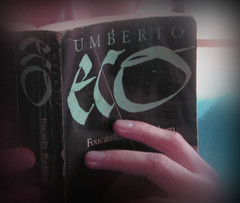 Image by Ross_Angus via Flickr
Image by Ross_Angus via FlickrThese books are appealing to a certain kind of audience, and some of them are controversial enough to stay in the bestseller list for such a long time, that the whole world gets curious. What is it about religious thrillers that makes them so engaging?
First of all, they explore one of the fundamental human urges: the impulse to worship. They also tackle the dichotomy between knowledge and belief. And they add to the perpetual question humans have been asking about existence since the time they started to figure stuff out. Is there a higher power or force? Is it likely an almighty, all-seeing all-knowing God exists? And if there is a God, is it likely to be the intervening kind?
Together with those questions are linked others to do with worship, religion and faith. Stacked upon which, of course, come the history of the various religions, their intersections and debacles, and their testimonies in the way of sacred writings. The wars, crusades, iconoclasts, inquisitions, schisms and other historical events add to the perplexing puzzles that make anything religious extremely interesting, very intriguing, highly debatable and not only a little controversial.
So it is no wonder that writers have taken on - at various times during the history of literature and the telling of stories in writing - some of these religious aspects and used them as background to novels. It is no wonder because humans always marvel, debate and think about these aspects - they will never go away. They continue to perplex and excite people, so writing a thriller with such ingredients is bound to attract readers who have wondered and debated.
To those who are knowledgeable about religious topics, and also to those who know less about religious aspects but love a good thrilling read, this kind of book is a fascinating way to combine entertainment with polemic. It is an engaging way to investigate and explore the deeper questions in a lighter way.
I would love to hear what you think about the popularity of religious thrillers. Leave your opinion now.























